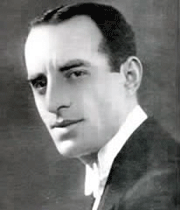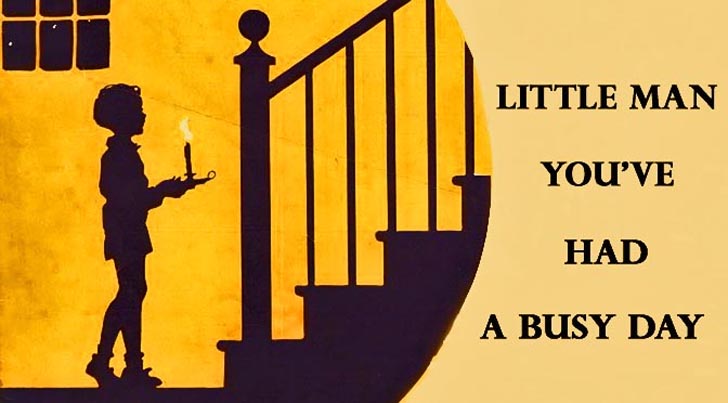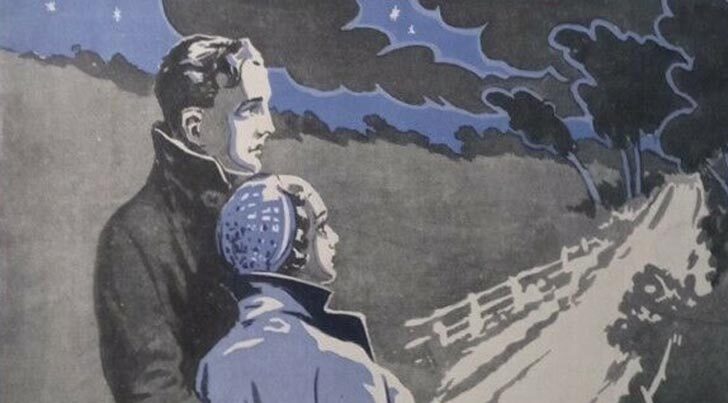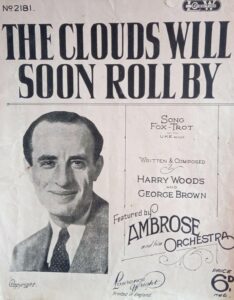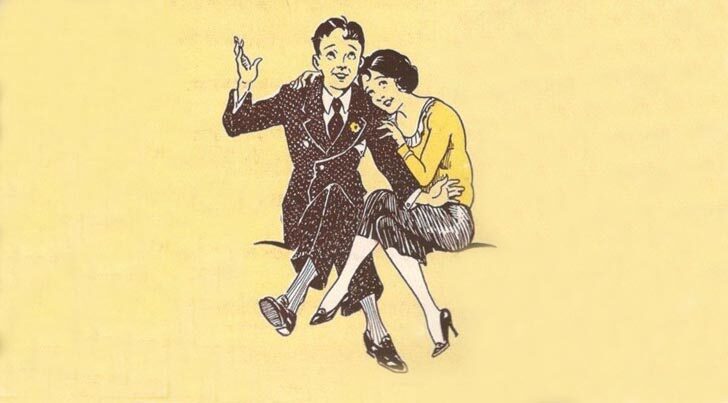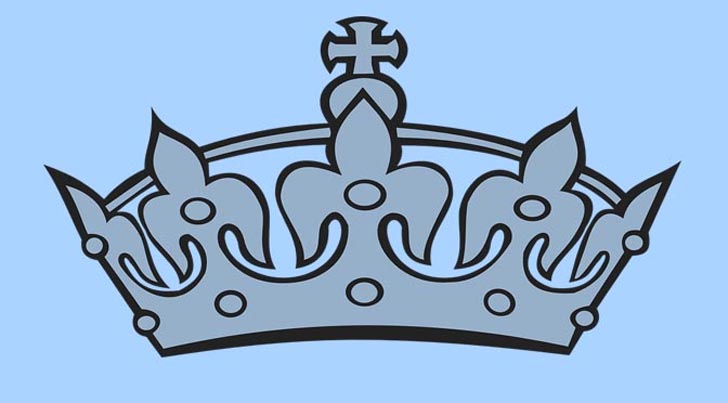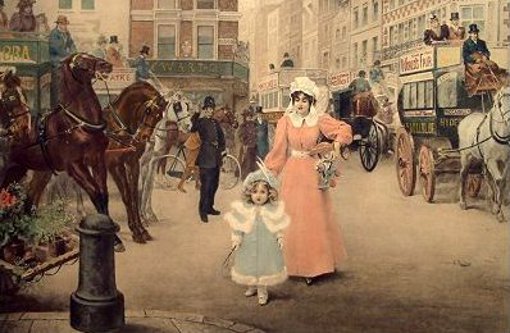If risqué elements constitute one of the primary attractions of interwar Anglophone popular music for modern audiences (think “Pu-leeze! Mister Hemingway”), perhaps the sentimental might be seen as the ingredient most likely to repel us. Lullabies and songs about nursery rhymes abound, especially in the 1930s: even in Elsie Carlisle’s repertoire, we have “This Little Piggie Went to Market,” “Who Made Little Boy Blue?” “Up the Wooden Hill to Bedfordshire,” and “Little Drummer Boy” — among the more obvious examples. And yet there are very good recordings of these kinds of songs that explore the compelling potential of childhood themes. For me, perhaps, the most moving examples are Carlisle’s two recordings of “Little Man, You’ve Had a Busy Day,” one done with an anonymous studio orchestra, the other with Ambrose.
“Little Man, You’ve Had a Busy Day.” Words by Maurice Sigler and Al Hoffman, music by Mabel Wayne (1934). Recorded by Elsie Carlisle with orchestral accompaniment on May 18, 1934. Decca F-3990 mx. TB-1258-2.
Elsie Carlisle – “Little Man, You’ve Had a Busy Day” (1934)
Because of its “solo” format, Elsie Carlisle’s Decca recording of “Little Man, You’ve Had a Busy Day” has a complete set of lyrics and some additional maternal bedside chatter. This is clearly not a recording aimed at a child audience, however; its evocation of feminine tenderness is the sort of thing that would appeal to grown-ups. Incidentally, the anonymous Decca studio band is particularly good in this number; they achieve memorable instrumental moments without ever upstaging Carlisle.
“Little Man, You’ve Had a Busy Day.” Recorded in London on June 12, 1934 by Ambrose and His Orchestra with vocalist Elsie Carlisle. Brunwick 01790 mx. TB-1295-3.
Personnel: Bert Ambrose dir. Max Goldberg-t-mel / Harry Owen-t / Ted Heath-Tony Thorpe-tb / Danny Polo-Sid Phillips-cl-as-bar / Joe Jeanette-as / Billy Amstell-cl-ts / Ernie Lewis-Reg Pursglove-sometimes others-vn / Bert Barnes-p / Joe Brannelly-g / Dick Ball-sb / Max Bacon-d / Elsie Carlisle-v
Ambrose and His Orchestra (v. Elsie Carlisle) – “Little Man, You’ve Had a Busy Day”
Ambrose’s version of “Little Man” benefits from a particularly sophisticated arrangement and a predictably elegant execution. Carlisle’s vocal refrain is incredibly precious and memorable. I would have imagined this record was a best-seller if I did not know how hard it was to find it! Admittedly, that seems to be a general problem with Ambrose’s Brunswick issues.
Elsie Carlisle does appear to have succeeded in being linked in the public’s mind with “Little Man, You’ve Had a Busy Day,” as it appears in her 1937 Elsie Carlisle Medley, which functions as a sort of “greatest hits” compilation.
In America that year, “Little Man” was made popular by the Pickens Sisters, Isham Jones and His Orchestra (with vocals by Eddie Stone), Connee Boswell, and Paul Robeson. Interpretations by British orchestras include those by Roy Fox and His Band (with vocals by Denny Dennis, in a Jack Nathan arrangement; they would revisit the song later in the year in a “Fox Favourites” medley), Billy Cotton and His Band (with vocalist Alan Breeze), Ray Noble and His Orchestra (with Al Bowlly), Jack Payne and His Band (with Jack Payne providing the vocals), The Casani Club Orchestra (directed by Charlie Kunz, with vocalist Dawn Davis), The BBC Dance Orchestra (directed by Henry Hall, with vocals by Kitty Masters, in a Phil Cardew arrangement), Harry Leader and His Band, and Eddie Wood and His Band. Other British vocalists who recorded “Little Man” that year include Phyllis Robins, Gracie Fields, and Donald Peers.

